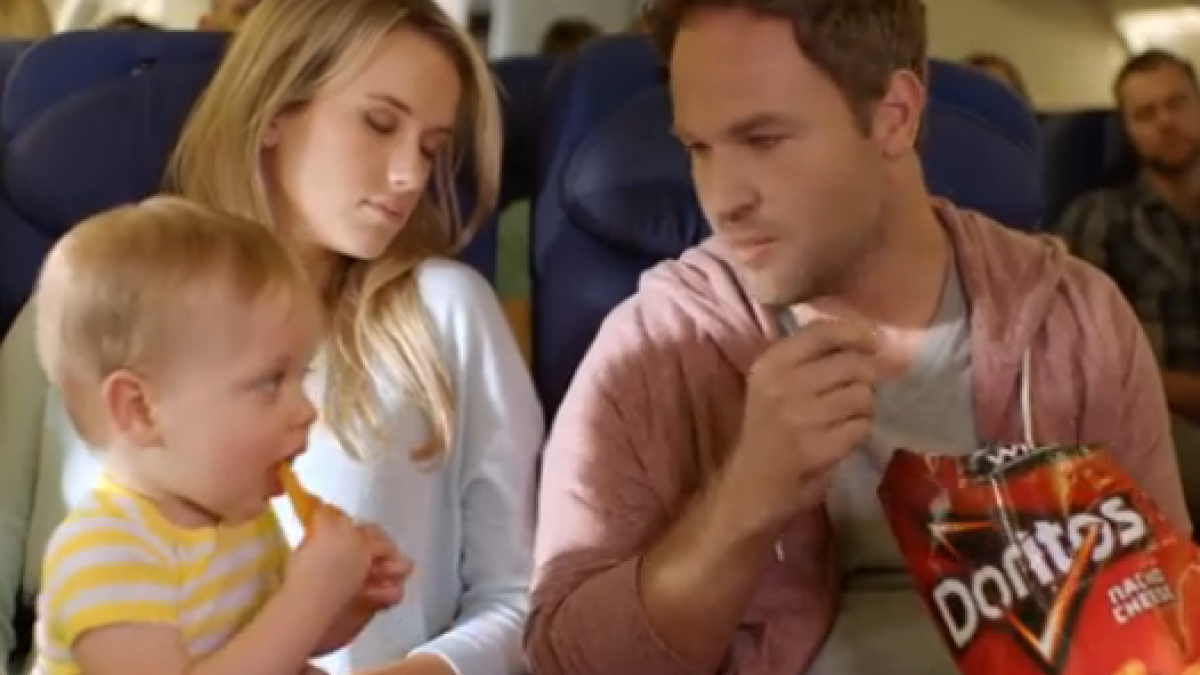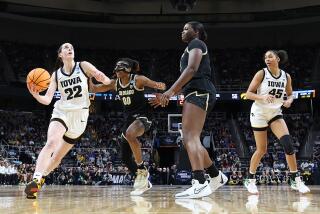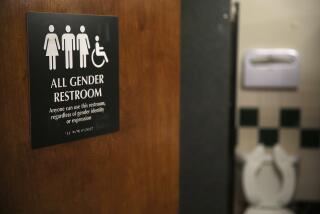Opinion: The proof that we’re winning the gender issues cultural battle

Last year, in the wake of the horrific mass shooting in Santa Barbara and the subsequent “YesAllWomen” hashtag on Twitter, I wrote an article in this space arguing that in many ways, our society’s problems with rape, gun violence and suicide are all different facets of the same underlying issue: “Men are never taught how to deal with difficult emotions, and so they take it out on other people or themselves.” I insisted that while it is certainly important to regulate firearms and to raise male awareness about sexual violence, it is also essential to construct and promote a healthier form of masculinity, one that “empowers men to deal with complex emotions in positive ways.”
Watching the ads during this year’s Super Bowl, I couldn’t help coming away with the impression that corporate America -- or at least its Madison Avenue-constructed outward face -- has arrived at more or less the same conclusion. In contrast to previous years, when sexist messaging reigned, this year’s Super Bowl overwhelmingly favored positive messages around masculinity and other gender-related issues.
Instead of the tired tropes that were expertly lampooned on Saturday Night Live, we were treated to:
--A Dove ad about fatherhood explicitly arguing that “real strength” comes from men showing they care.
--A father in a Toyota ad who cherishes the experience of raising a daughter -- complete with him respecting her autonomous grown-up decisions and openly shedding tears.
--A father in a Nissan ad who tries to be there for his son with mixed success, but ultimately appears to realize that his son is the most important thing.
--An Always ad that reframes what the term “like a girl” should mean and argues that doing something “like a girl” should be about “doing amazing things.”
--A Toyota ad in which Muhammad Ali plays hype-man to female athlete Amy Purdy.
--A Nationwide insurance ad in which Mindy Kaling ends up basically stalking (and kind of objectifying) Matt Damon.
--A Kia ad in which Pierce Brosnan tries to have a traditional 007-esque male car fantasy -- but is thwarted by an ad exec who forces him to stick to more pedestrian terrain.
--An NFL-affiliated NoMore.org ad that powerfully makes the case for people to listen to women when they talk about -- or anxiously allude to -- domestic violence. (It’s a bit late, but a great ad nonetheless.)
Even most of the ads that seemed like they might veer into sexist or misogynist territory ended up avoiding doing so:
--A Doritos ad shows a guy trying to attract a woman on an airplane with Doritos, but he’s disappointed to discover that she has a baby with her. For a moment it might seem like the ad is suggesting that women with children are less attractive, but the real point is that kids on planes are pains -- and the guy ends up being great with the kid while mom sleeps.
--An Esurance ad seems for a moment to suggest that women are bad drivers, then goes out of its way to make the point that Lindsay Lohan is a bad driver. Most women aren’t Lindsay Lohan, Esurance argues, and their insurers should treat them accordingly.
--A “Game of War” ad has Kate Upton marching around in a bodice that puts the “yea” in bustier, but she’s also apparently running a kingdom (or something) in a Game of Thrones takeoff.
--T-Mobile has an ad with Kim Kardashian being her ridiculous selfie-fied self, but it’s counterbalanced by another, Bechdel-tested T-Mobile ad with funny women Sarah Silverman and Chelsea Handler in an entertaining competition over Wi-Fi cell reception.
Of course, there were a few ads that played on old-fashioned machismo and gender stereotypes, but even those were relatively tame:
--Budweiser debuted an ad about beer that’s “brewed the hard way” which makes fun of hipsters who dig artisanal beer -- but in fairness, those dudes can be kind of ridiculous.
--Skittles had a cartoonish ad about arm-wrestling that was too silly to be troublesome.
--“Fifty Shades of Grey” had a trailer that was pretty tame, despite its dumb source material.
--Fiat had an ad in which a guy loses his Viagra-esque pill before sex and it bounces around the streets of Italy until it lands in another man’s gas tank -- transforming the car into something a little bigger and stronger. It’s so self-consciously over the top that it manages to make fun of its own archetypes, and it’s also hilarious in its sheer slapstick lunacy. (Also, subtle side-message: older women can be sexy.)
--Chevrolet had an ad arguing that women prefer men in trucks, which is fairly retrograde, but let’s be honest: some guys do pair better with a truck, just like some wines pair better with steak. Others prefer coups because we don’t feel like our manhood requires automotive enhancement and we don’t want to have to parallel park a pickup.
The bottom line is that although it’s easy to be jaded or pessimistic, when it comes to masculinity and gender issues, a slate of Super Bowl ads like we saw on Sunday is basically what winning a cultural battle looks like. It’s a small victory, but that’s how change happens: incrementally, one subtle step at a time.
I call it the banality of progress, and it deserves to be celebrated -- if for no other reason than so that advertisers and other culture leaders stay the course.
Joel Silberman is a Los Angeles-based writer and the producer of such viral Web videos as “Legitimate Rape” Pharmaceutical Ad (TW) and Kids Do The News. Follow him on Twitter @Wordpeggio.
Follow the Opinion section on Twitter @latimesopinion and Facebook
More to Read
A cure for the common opinion
Get thought-provoking perspectives with our weekly newsletter.
You may occasionally receive promotional content from the Los Angeles Times.






